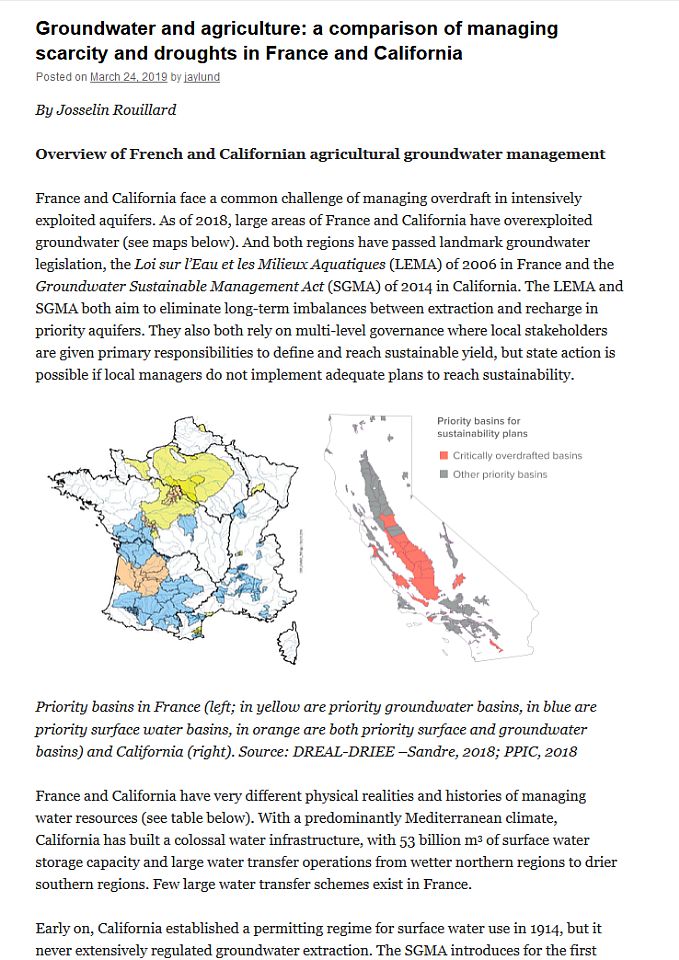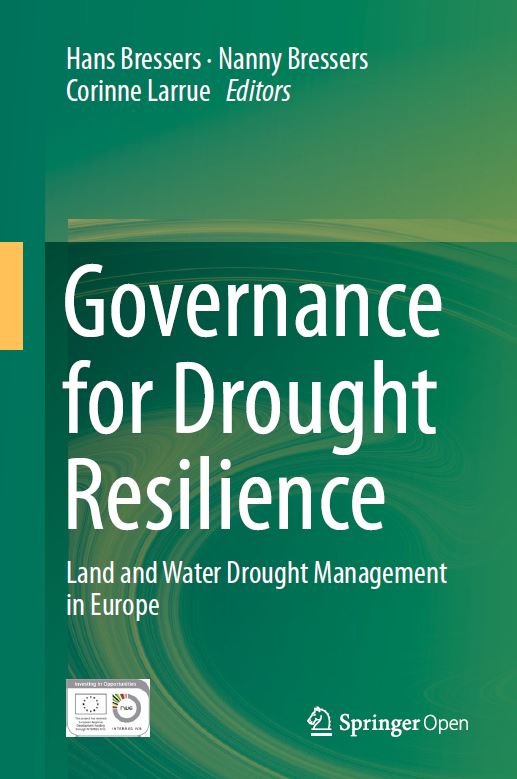Multilevel Governance for Drought Management in Flanders
Using a Centralized and Data Driven Approach
- Publication
- Citation
Tröltzsch, Jenny 2019: Multilevel Governance for Drought Management in Flanders. Using a Centralized and Data Driven Approach. In: La Jeunesse, Isabelle and Corinne Larrue (eds.): Facing Hydrometeorological Extreme Events: A Governance Issue. John Wiley & Sons: Hoboken, New Jersey. 219-232 pp.
The book "Facing hydrometeorological extremes: a governance issue" collects field investigation from several EU research projects on hydrometeorological extreme events and the successful examples of multilevel governance in response to them. Scientists from Ecologic Institute led or contributed on three book chapters, summarizing the regulatory framework as well as focusing on specific case studies. In Chapter III Jenny Tröltzsch presents a summary of the governance analysis of drought‐related issues in the Flanders region of Belgium.
Water scarcity and droughts could hit tipping points of permanent stress in the future. Freshwater use is one of the nine Planetary Boundaries detected by Rockström and Steffen in 2009. Transgressing this boundary will bring about abrupt environmental change, with disastrous consequences for humanity. Accordingly, water management has to be made more resilient. The application of governance research findings may help to unleash so far untapped potential to improve management practice.
Policy makers will be forced to face climate change-induced disasters at greater frequency and intensity than ever before. In this sense, the book constitutes a useful governance tool. Its thorough account of socio-ecological systems and multilevel governance makes interesting reading for scientists and researchers as well. Fellows from Ecologic Institute presented relevant case studies and introduced the European political landscape on water scarcity policies.
"Facing hydrometeorological extremes: a governance issue" takes an innovative perspective. It effectively combines scientific and policy-related knowledge on climate-change induced phenomena. The narrative showcases real-life success stories of multilevel governance in hydrometeorological emergencies. Accurate stories of floods, droughts and coastal storms focus on the actors involved and the resources mobilized in the decision-making process.
The book features an innovative “multi-hazards” approach. It consistently mixespolicy, governance and field investigations’ outputs. Another of its peculiarities is the diversity of case studies, which illustrate how these strategies play out over different contexts and scales of the decision-making processes.
The book starts with a short summary of hydrometeorological extreme events and their effects on society . It then presents various fruitful strategies in reaction to hydrometeorological extreme events. These stories highlight how societies are organizing themselves to face climate-change induced phenomena. Particular attention is devoted tothe integration of risk management in governance and public policy schemes.


